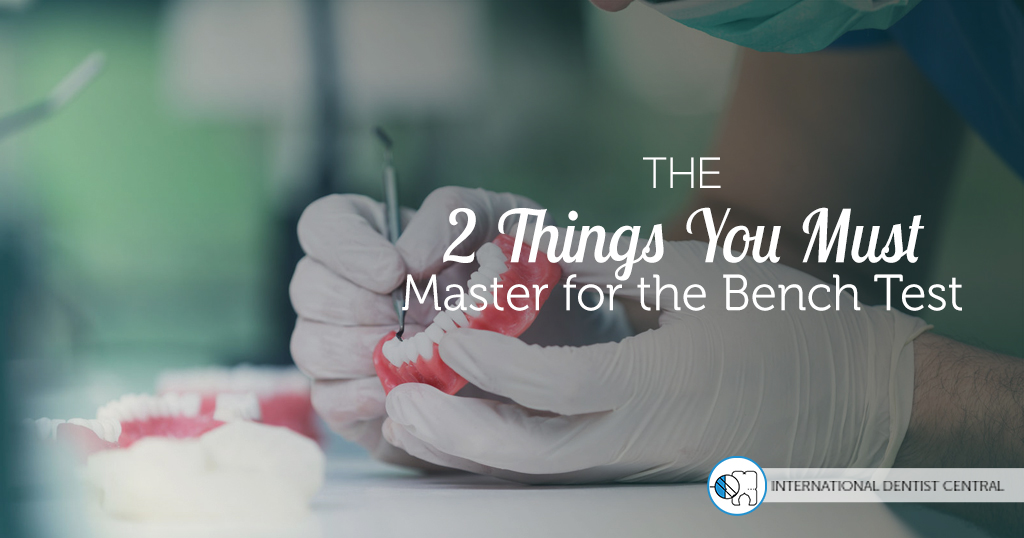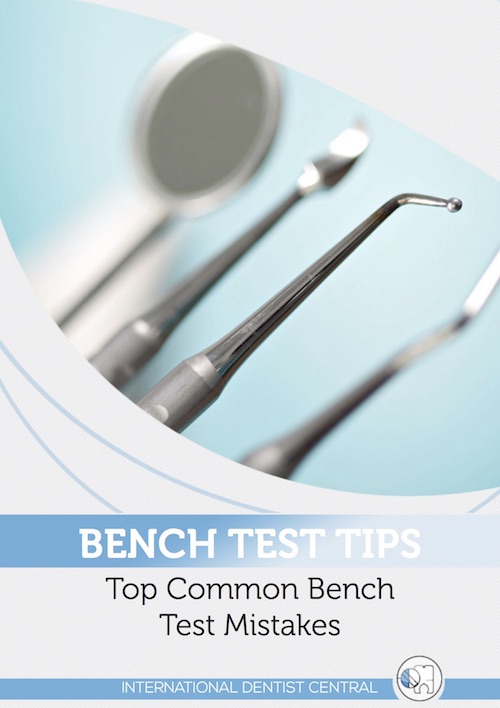The first year of Bench Test Mastery at International Dentist Central has completed successfully. Everyone improved significantly in bench test skills and interviewing abilities, and also learned a lot about the larger picture of the whole process. Students seemed happy with the personal attention they received in the intimate setting of the course.
As the mentor I also learned a lot from the students. I saw how everyone had different approaches and styles of working. I learned the importance of observing students perform the work, sometimes from far away without them knowing, rather than just doing critiques. I learned that different people have different ways of learning, and that I have to be flexible in my teaching methods to bring out the best of the students. I also tasted the rewarding feeling when students improved.
No two students were alike in the group, so you’re probably different from them too, but I did see that everyone needed this one message, so I wanted to share it with you as well.
When preparing for the bench test, the long list of things to practice may feel overwhelming. There are so many different preparations different programs have been asking for, and some don’t even disclose what items the’ll test you on. How on earth should you prepare for them all, and what if something totally new is asked on the test day that you’ve never done before?
When everything seems so complicated, it’s probably time to go back to the basics. In terms of preparations, just focus on a few things first, like a lower molar class II and upper anterior PFM, but train your hands and eyes. Once your eyes can tell what improvements should be made and your hands can execute them, with just a little more practice your preparations will be amazing. The challenge comes in because you don’t exactly know what to look for, and your hands don’t move the way you want them to.
Lets talk about them more specifically. An example of needing to train your eyes would be that often students don’t realize that their line-angles are not well defined, there’s unsupported enamel left behind, the preparation meant to be for an amalgam is divergent, or that there is an undercut in their crown preparation. For eye training, you probably need some feedback. Listen to other people critique your work, it will suddenly show things clearer to you. You need to spot your mistakes to know what to work on.
An example of needing to train your hands – when refining and smoothening, floors getting deeper, isthmus getting wider, and chamfers getting wider. When this is happening, even if you practice all day your improvements will be baby steps. The same mistakes will be made over and over again, and yes you will know that your isthmus is always wide, but it won’t get much better because you don’t yet have the ability to precisely control your handpiece to move it the way you intend to. But if you learn that skill, now things are much easier – you can actually do the preparation the way you’ve planned to do.
These skills don’t come from practicing every preparation possibly asked, but rather going back to the basics and training your eyes and hands. Put your typodont on the table and try to do a preparation. Notice where your making mistakes and see if you can correct them. If not, practice keeping your handpiece steady while you work and apply very light pressure to the tooth as if you don’t mean to cut at all, this is the first and biggest improvement you need to make to progress further. When this is done, you inevitably know the basic rules for preparations and also how to do them, and it’s now easy to adapt the rules to different teeth. Now you can think, reason, and execute with just about anything.
I didn’t plan on it, but this ended-up being a big part of the course. Students seemed a bit surprised at first, but quickly understood the importance of this and were able to drastically improve in just 3 days. To make true improvements you need to get to the core of the issue – without a solid foundation whatever you do will be weak and sub-par. The reason schools are making the bench test more and more complicated is because they want to find the candidates that truly have good hand skills, not those who just know how to do a couple things well to get by the bench test. To deliver up to that expectation you’ll need to build a strong foundation yourself. You wouldn’t expect a house built on sand to be very strong after all, right? And you can do this in less time than you think.
So my advice for you would be, try going back to the basics of training your eyes and hands rather than working on every single prep, even if you only have a week left till your test. It will pay-off.






I want to do the intensive workshop but would like to time it so that I have an interview date shortly afterwards! I’m not sure how to go about this – are your dates fixed. When can I book by?
The class dates are fixed and size is upto 8 students at once. You could choose your dates later as long as there’s still space. I do recommend that you give yourself at least a couple weeks to practice and internalize what you learned during the class before going to take the test though, if you want to maximize your performance.
General question, us there is any way to practice dentistry in the USA without taking postgraduate studying? In other way without being a DDS??
Unfortunately not. You’ll either need to go to school and get a DDS or do a postgrad residency program